

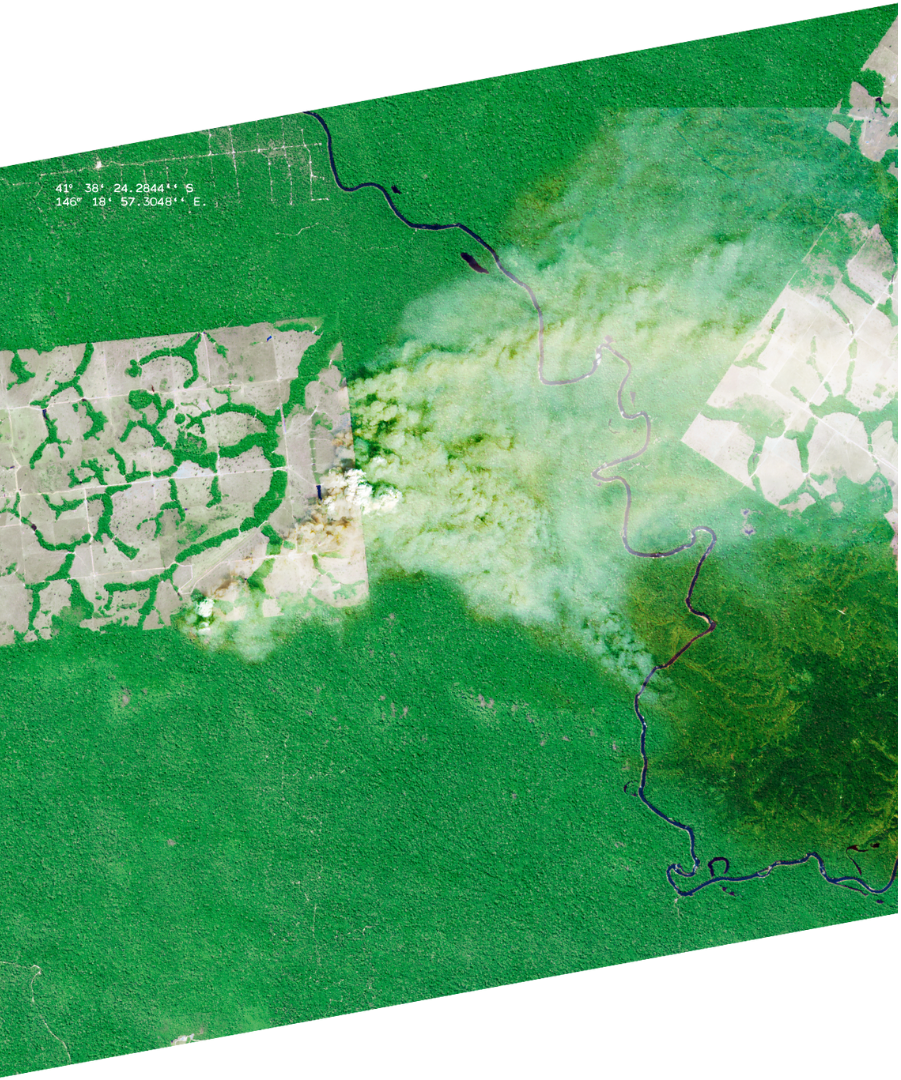



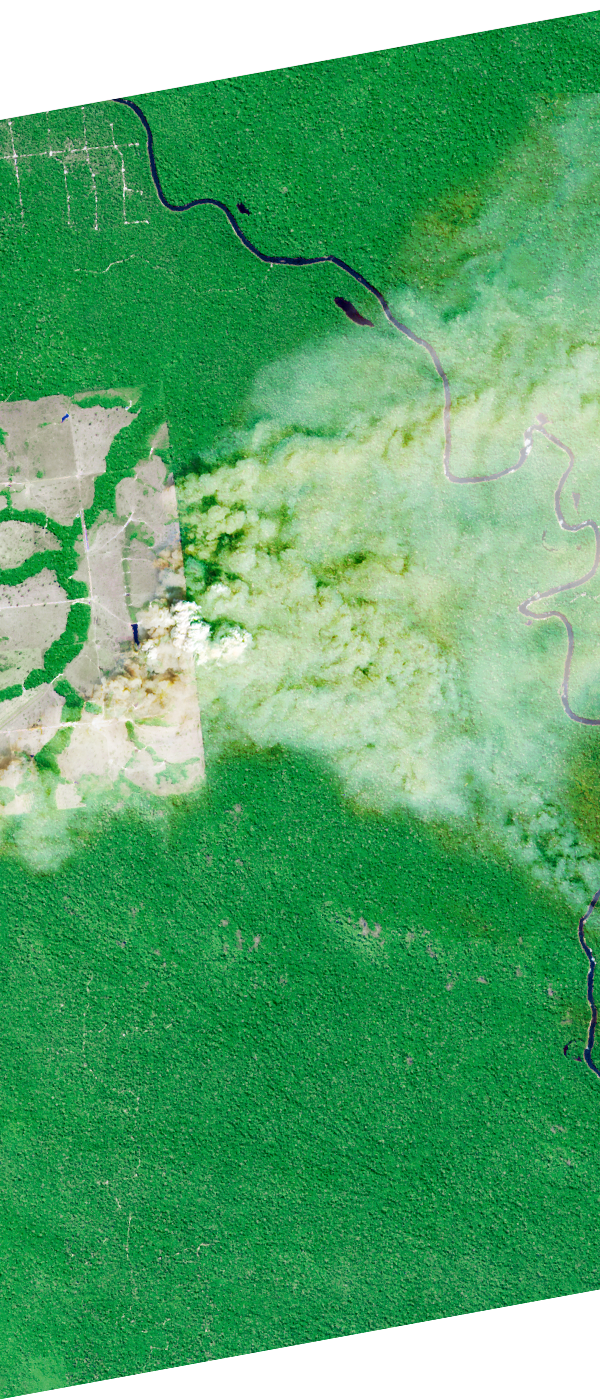

Public, government and business concern about global deforestation and biodiversity loss is sparking a growing wave of initiatives from the private sector. But are companies in Australia doing enough to protect forests?
The Wilderness Society has conducted a benchmark to understand how companies associated with deforestation risk commodities in Australia are addressing the issue. The focus is on the supply chains for commodities linked to deforestation1 in the country: timber, pulp and paper, beef and leather as well as bauxite. We assessed influential companies within these commodities on their publicly available policies and plans to address deforestation.
See the Deforestation Benchmark Overview for more information on the purpose of the assessment, the impact the production of these commodities is having on forests in Australia, as well as the benchmarking methodology.
1. Including the deforestation, degradation or conversion of primary forests, remnant forest, HCV and HCS areas as well as the conversion of natural ecosystems.
This document expresses the opinions of Wilderness Society Limited. It is based on each company’s publicly available policies and other relevant documents that were known and available to the authors as of 31 August 2023. This document does not give financial or legal advice.


The benchmark found that only a very small proportion of the companies assessed currently have sufficient policies and procedures in place to rule out deforestation from their supply chains.
Corporate policies and commitments vary greatly among the roughly three dozen companies assessed in the benchmark. While some of these companies make no mention of the issue of deforestation, others have detailed public plans to ensure none of their activities result in deforestation
This bulletin is the second release of The Uncovered. It discloses the scores of “those who disguise”. These companies have general commitments on deforestation, but almost no information about how, when and where these commitments will be actioned. They offer little to no transparency on what they are doing, if anything, to begin to trace and verify their supply chains in Australia, and share their progress towards eliminating deforestation risk from their Australian supply chains.
While making commitments to eliminate deforestation is welcome, these companies risk making empty, unaccountable promises until they start to report transparently on their implementation efforts.

Introducing "those who disguise"
Avery Dennison is a multinational labelling manufacturer and materials science company. It has been assessed on its pulp and paper supply chain.
JBS is a global meat processing company which originated in Brazil with activities in Australia. It has been assessed on its beef supply chain.
Teys Australia is a meat production joint venture between Teys and Cargill Beef Australia. Cargill is an American global food company. Its beef supply chain has been looked at in this assessment.
Wesfarmers is an Australian company with activities in retail, chemicals and agriculture whose businesses include Bunnings, Kmart, Target and Officeworks. Its timber and pulp and paper supply chains have been assessed.
Woolworths is an Australian retail group operating over 1,000 supermarkets in the country. It has been assessed for its pulp and paper and beef supply chains.
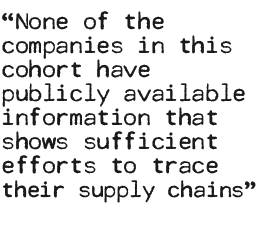
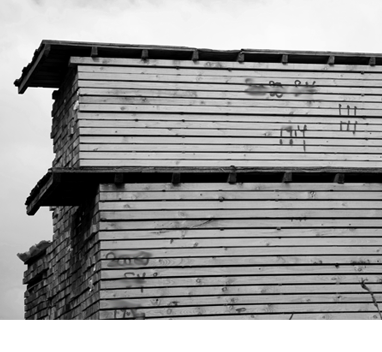
Ranking
The benchmark separates the general policy and commitments from the commodity-specific plans and information on their implementation (read the full methodology in the overview). All companies have a combined score across their general and commodity-specific commitments.
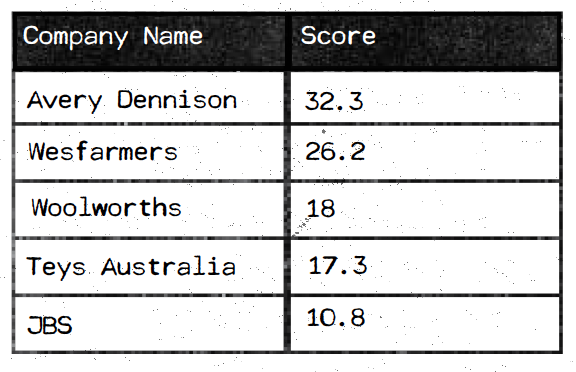
See Annex 1 - cohort scoring comparison
Scoring data is available upon request at [email protected]
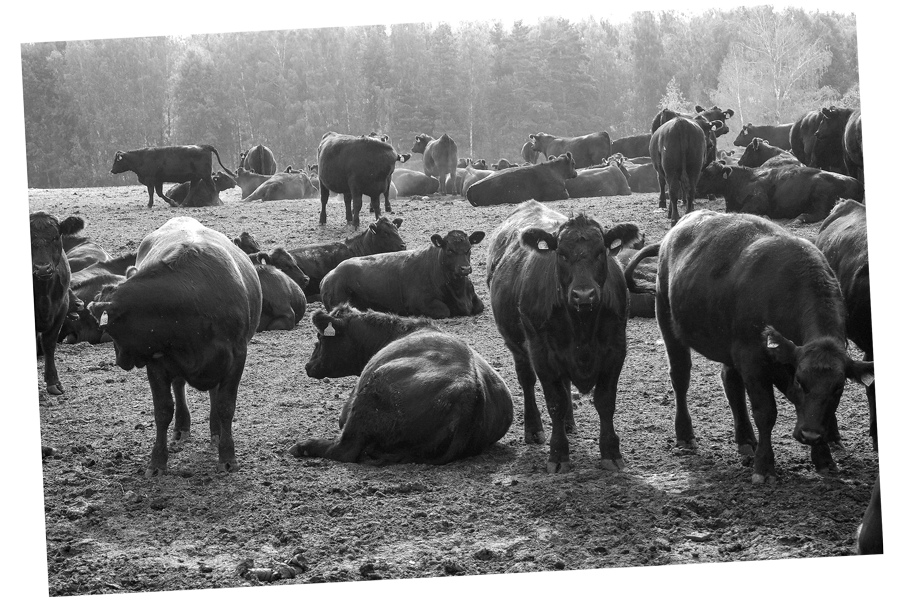
Insights and how to improve
The companies in this cohort stand out from the rest of the companies assessed because of the gap between their commitments and the lack of information about what they are doing to achieve them. They all have some form of commitment to remove deforestation from their supply chains. Some of these companies clearly state they will exclude non-compliant suppliers, and already source products that are credibly certified. However, the scope of their commitments is overall insufficient, as it is not explicit whether they consistently apply to subsidiaries, joint ventures and all suppliers. This is especially relevant for companies that, in Australia, operate via subsidiaries or joint ventures of global groups. These parent groups have commitments at the global level, yet it is unclear whether commitments are applied in Australia.Additionally, while some of these companies aim to achieve their commitments by 2025, others have target dates that are as late as 2035, lagging behind international best practice. The majority of companies in this cohort weren’t part of any ambitious initiatives on deforestation, and no information indicated any support for Federal or State legislation to end deforestation.
None of the companies in this cohort have publicly available information that shows sufficient efforts to trace their supply chains in Australia for the elimination of deforestation. While some have implementation plans, they remain partial or lack measurable milestones. There is also a clear lack of transparency around their supply chain volumes, suppliers and progress towards their deforestation-free commitments. Strikingly, all the companies assessed for their beef supply chains in this cohort scored no points in the beef-specific sections, showing a complete absence of information about how they intend to fulfil their commitments and remove deforestation linked to beef production in Australia from their supply chains. Companies in this cohort generally provided some limited information on their pulp and paper and timber commitments.
To ensure their commitments don’t stay empty promises and risk turning into greenwashing, these companies must:
- Broaden and clarify the scope of their commitments on deforestation, to ensure it applies to all suppliers and company activities, including subsidiaries and joint ventures. They should also ensure their commitment targets are no later than 2025 in line with international best practice. They should also make sure their commitments are robust, and aim to protect all natural forests and ecosystems.
- Show real intent and plans to apply these commitments in Australia. These companies must publish time-bound, robust implementation plans that explain how they will remove deforestation from the supply chain of each risk commodity in Australia. They must introduce or strengthen requirements for suppliers, with suspension and exclusion procedures in case of non compliance and deforestation cutoff dates that are no later than 31 December 2020. They must improve transparency on the tools they will set up in order to monitor, and eliminate deforestation in their supply chains, including publicly-available mapping and traceability, on-ground and remote verification systems as well as credible certification schemes.
Importantly, on pulp and paper and timber, these companies should avoid the common pitfall of relying on any certification schemes to assume they are free of deforestation risk. For example, the PEFC Responsible Wood certification scheme has not proved to prevent deforestation in Australia. The Wilderness Society recommends companies only rely on FSC 100%, or FSC Forest Management certification or fully recycled sources to avoid deforestation risks in pulp and paper and timber supply chains.
Introduce transparency and accountability on their commitments. These companies should publish information about deforestation risk in their supply chains, including volumes at risk of deforestation, lists of direct suppliers, information about instances of non-compliance, annual progress and verification reports.

Analysis of individual scores
Avery Dennison has obtained a score of 32.3 / 100, the highest of this cohort. While the company has a commitment on deforestation, it lacks strength by relying only on “certified sources focused on a deforestation-free future”. It is unclear whether the commitments apply to all company operations, and it excludes indirect packaging suppliers from them. The company also isn’t an active member of any key initiatives with deforestation commitments. It published information about how it intends to achieve its deforestation commitment. However, this implementation plan is limited in scope as it relies only on certification. Avery Dennison applies a cutoff date that is earlier than best practice, and some of its products are credibly certified. Avery Dennison also makes efforts towards transparency: for example, it discloses that Australia represents 0.9 % of its pulp and paper sourcing and reports on its progress. However, its verification systems are insufficient to ensure products sourced from Australia do not originate from deforestation. Avery Dennison would benefit from strengthening its commitments to eliminating deforestation risk and their implementation in Australia beyond certification.Wesfarmers scored 26.2 / 100. While Officeworks, Bunnings and Kmart Group have commitments on deforestation, there is no group-wide commitment to eliminate deforestation from Wesfarmers’ Australian supply chains. Moreover, these commitments tend to have significant caveats and restrictions such as allowing any certification schemes or accepting some forms of natural forest conversion, therefore undermining Bunnings and Officeworks’ ambition. Officeworks states a preference for FSC 100% over FSC Mix certification. Wesfarmers companies already retail some credibly certified products. Commitment target dates are between 2020 and 2025. For both pulp and paper and timber, there are implementation plans and intentions to trace supply chains, as well as contract cancellation pathways for non-compliant suppliers. Wesfarmers should set a group-wide ambitious commitment to eliminate deforestation and conversion of natural ecosystems from its supply chains, enhance its implementation plans and verification systems, and provide transparent progress reports towards these commitments.
Woolworths scored 18 / 100. While it does have a commitment to eliminate deforestation from its fresh beef supply chain by 2025, Woolworths’s pulp and paper and timber commitments are for net-zero deforestation, and largely rely on certification. Woolworths stocks FSC 100% own brand products, and is a signatory to the Consumer Goods Forum and Science-Based Targets. While Woolworths does have a public implementation plan for its pulp and paper commitment, publicly available information showed its monitoring and verification systems as well as its traceability efforts on pulp and paper fell short of international best practice. No information was found about deforestation cutoff dates or supply chain transparency, or about whether Woolworths is implementing its 2025 beef commitment and, if so, how it intends to verify its supply chain. Woolworths would benefit from strengthening its existing commitments in line with international best practice, developing robust monitoring and verification systems for pulp and paper and beef, and improving transparency around its commitments, including providing public information on how it intends to eliminate deforestation from its beef supply chain.
Teys Australia has obtained a score of 17.3 / 100. While Cargill has a global commitment to eliminate deforestation across its supply chains by 2030 that applies to all suppliers, and has endorsed the New York Declaration on Forests, it is unclear whether its commitment applies to joint ventures, and thus to Teys Australia. No publicly available information was found indicating any intentions to fully trace supply chains in Australia for the purpose of realising these commitments. Teys Australia’s score accounts for a total absence of information on the implementation of its commitment in the beef supply chains in Australia. Teys Australia should clarify whether Cargill’s deforestation commitment applies to Teys Australia, and publish information about how it intends to eliminate deforestation risk for beef in Australia.
JBS has obtained a score of 10.7 / 100. At the global level, JBS has a commitment to eliminate deforestation from its supply chain by 2035. It is unclear whether this commitment applies to other natural ecosystems, all direct and indirect suppliers and all company operations. 2035 is also misaligned with international best practice target dates, which is 2025. There was no further information available on whether JBS is taking any steps to eliminate deforestation from its beef supply chain in Australia, including implementation plans, verification systems, full traceability or progress reports. JBS should bring forward its global deforestation commitment to 2025 in line with global best practice, and urgently publish an implementation plan on the elimination of deforestation for beef in Australia including the use of effective tools to trace and monitor its supply chains.
Download Bulletin #2 pdf
This document expresses the opinions of Wilderness Society Limited. It is based on each company’s publicly available policies and other relevant documents that were known and available to the authors as of 31 August 2023. This document does not give financial or legal advice.
The Wilderness Society acknowledges First Peoples across the continent as the traditional custodians of Country, over which sovereignty was never ceded. We pay our respects to Elders and Ancestors who have cared for Country through millennia and acknowledge the unbroken connections to culture and Country which continue to endure today.